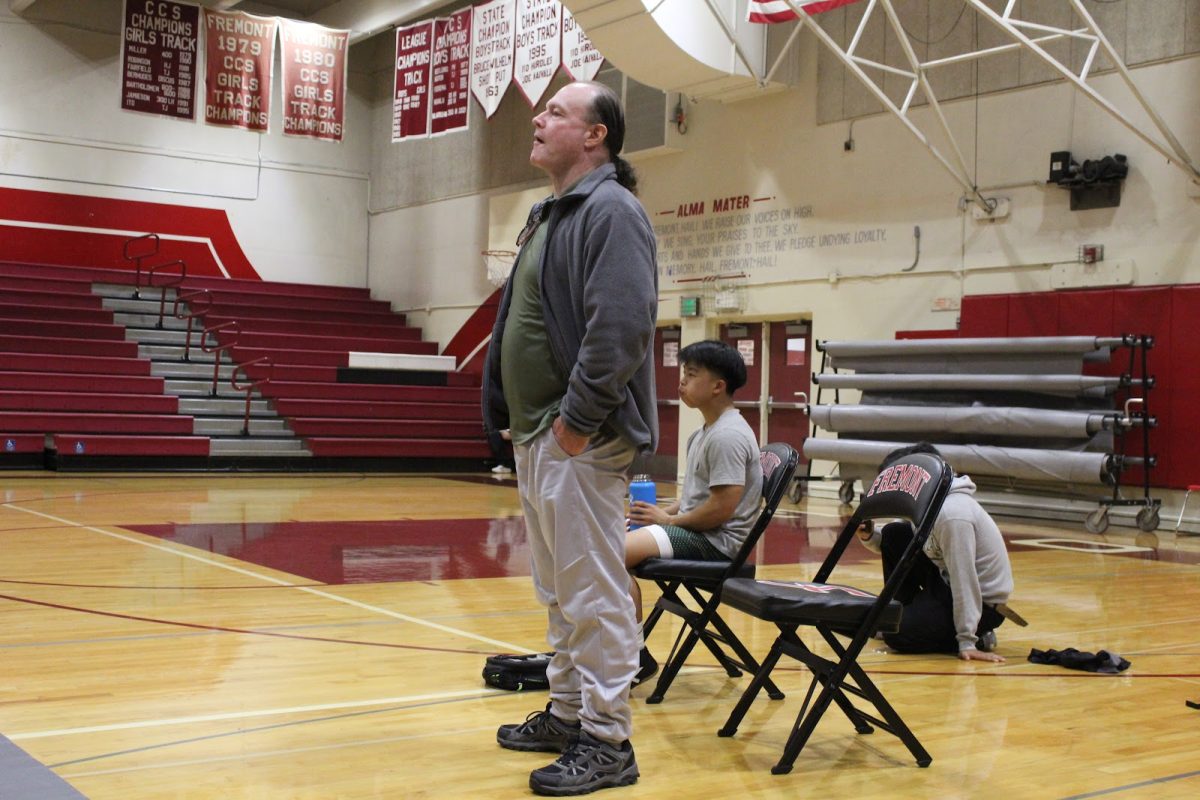The spotlight flickers on to reveal a lonely hospital cot, revealing Alex O’Connor, better known as Rex Orange County, sitting beside a doctor. As he sits on the bed, he sings his song “Alexander,” a tragic story of addiction and mental illness, marking the beginning of Rex’s journey through the cyclic seasons of grief and redemption.

I saw Rex’s “Finally: A Theatre Tour,” at the Oakland Paramount Theater on Nov. 20. The venue, while small in size, amplified the emotional impact of Rex’s music, making the concert experience more personal.
Throughout the concert, the stage varied set pieces and color schemes to represent different seasons, allowing the scenery to complement each song. The cool blue tones of winter glowed for slower songs of heartbreak and unrequited love. Contrastingly, happier and upbeat tracks filled with saxophone solos, such as “Television/So Far So Good,” were accompanied by vibrant oranges reminiscent of autumn.
Though it seemed like a minor addition, the stage’s environment heavily impacted the storytelling within the concert. For example, the autumn-based set acted as the halfway point of the show, representing the shifting seasons and Rex’s transitioning artistic focus in the concert.
This turning point in the show was marked by the song “Sunflower,” acting as a segue from the sadder beginning to the energetic summer ending. The song started with a somber tone, but as it progressed, it changed into a feel-good tune meant to capture the cycle of emotions Rex has undergone.
For the conclusion of his season of upbeat ballads, Rex told the audience to put their phones away while he performed “Best Friend.”
The song moves the audience back into sadder, more introspective territory describing an empty and ignored love. Despite all his fortune and fame, Rex still feels alone, as emphasized by the line, “I should’ve stayed at home. ‘Cause right now I see all these people that love me. But I still feel alone.”
“Best Friend” acts as a powerful metaphor for the theme of the larger show. As he relapses into the somber feelings expressed at the beginning of the show, he brings the audience back to the idea that struggles with addiction and mental illness come and go in a cycle. The emotions Rex explores are meant to serve not as a cautionary tale but as one of hope and the ability to achieve self-actualization.
Rex’s lyrics and emotions led me to reflect on my growth, analyzing my journey through the seasons of life. It is hard to create music that inspires change and makes a person reflect on failure. However, Rex presented a creative take on an often clichéd theme, captivatingly pairing his lyrical prowess and onstage charisma with his unique perspective on the human experience.










![Junior Shiva Chitta said his friends and family encouraged him to attend prom, despite initially intending not to.
“My mom told me to go and ‘have a slice of [my] life,’” Chitta said. “I'm sure there are prom [events] in colleges…but we have to go [to junior and senior prom.]”](https://hhsepitaph.com/wp-content/uploads/2024/06/PromG2024_1-1200x800.jpg)











